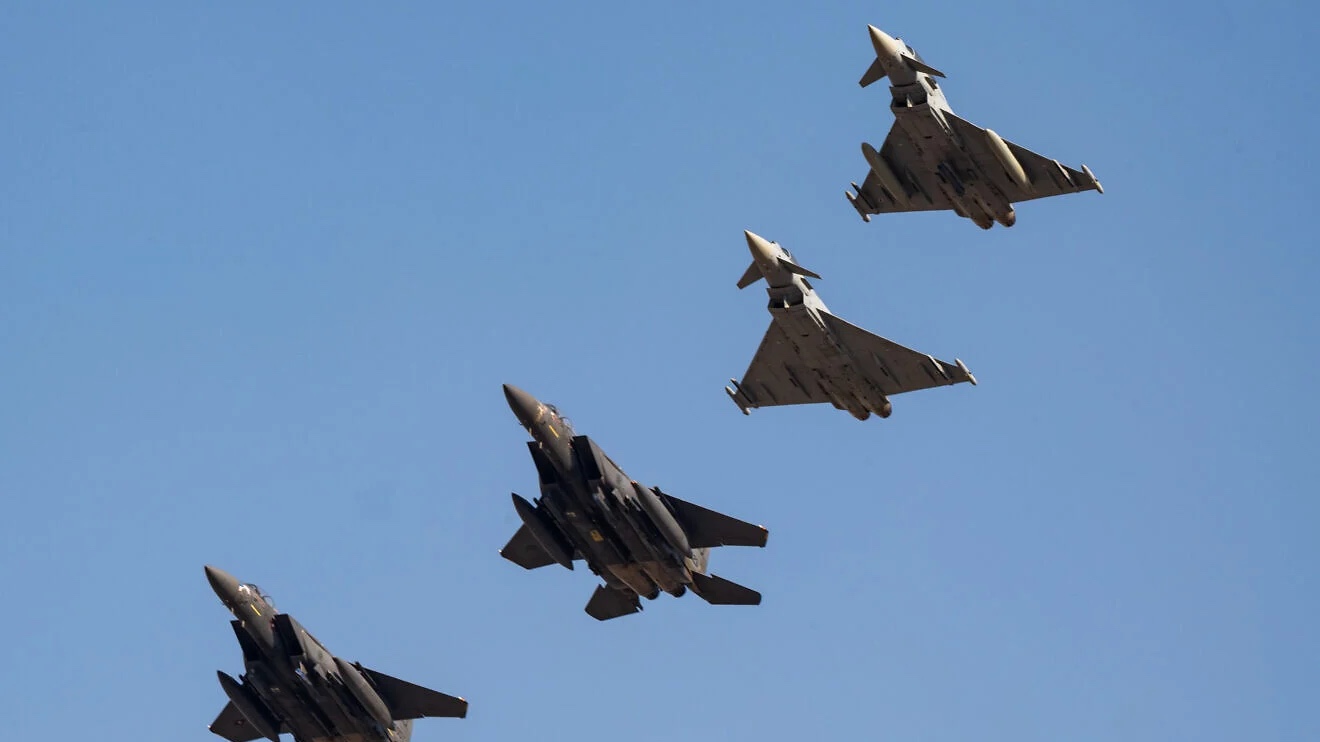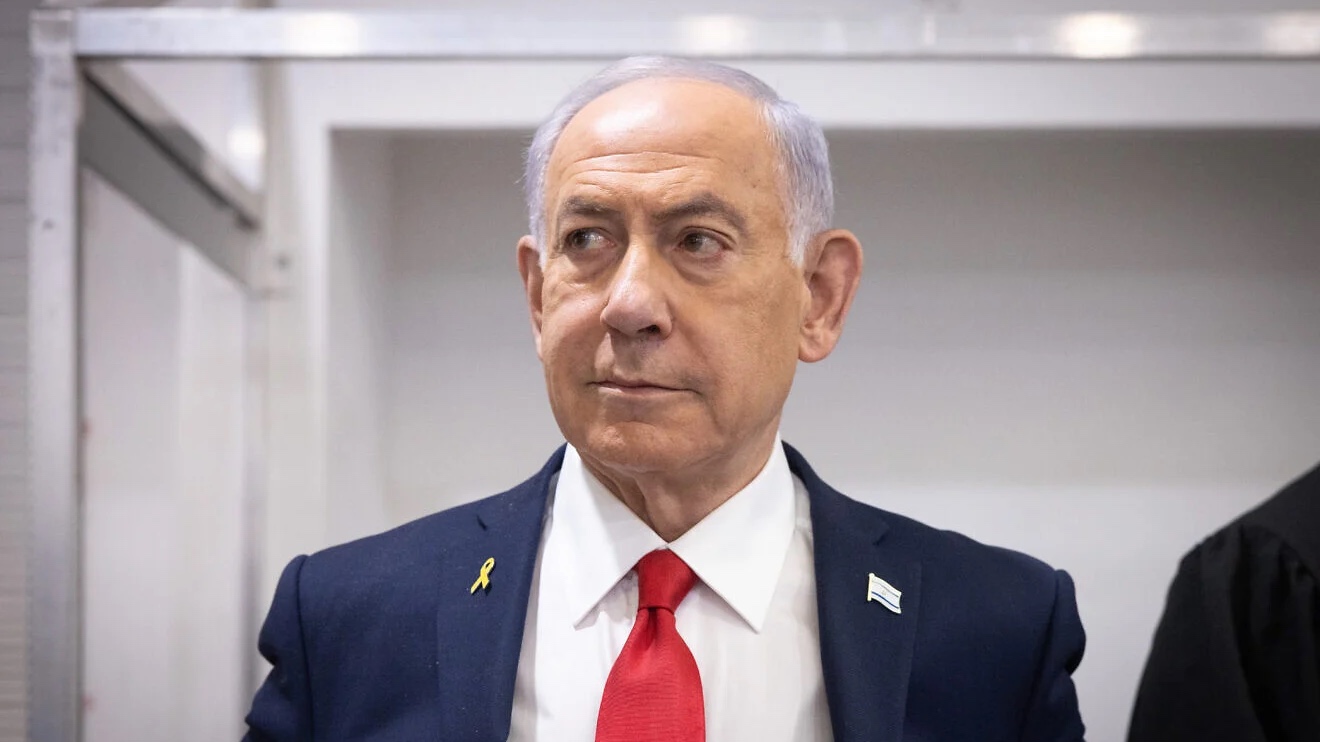(JNS) Following a tumultuous two-year war, Israelis have understandably remained fixated on the crisis that erupted on Oct. 7, 2023. But the world has not stood still. Global dynamics have shifted dramatically—and Israel can no longer afford to look away.
That was the central message at last week’s Mida conference in Jerusalem, an annual gathering that reflects a growing effort among leading Israeli right-wing thinkers to step back from the country’s crisis-driven mindset and grapple with long-term global trends.
Held at the Begin Center in Jerusalem, this year’s event surveyed sweeping changes across arenas ranging from the US–China race for AI dominance to the rise of open antisemitism in parts of the US conservative movement, as well as the rapid ascent of Muslim-majority countries in global academic rankings.
The conference’s opening “wake-up call” came from economist David Woo, a former IMF official and senior Bank of America Merrill Lynch researcher, who warned that Israel must urgently widen its gaze.
Woo—born in Pittsburgh to Taiwanese parents, married to an Israeli and newly naturalized himself—framed the country’s narrow focus as a strategic liability.
China, he said, has nearly erased the US technological lead in AI technology, leveraging its dominance in rare-earth processing and massive industrial automation. That advance, he argued, threatens to nullify the enormous sums Western companies are investing in AI—or even “pop the AI bubble” currently helping prop up the US economy despite tariff-driven financial strain.
Western firms are spending hundreds of billions of dollars on chips and data centers while struggling to generate real revenue from AI, Woo noted. Only a minority of companies are ready to deploy it at scale. Meanwhile, Chinese firms are producing competitive tools like DeepSeek, often without the exclusive hardware Western developers rely on.
While the US seeks to “build a wall” around its AI technology, China’s strategy is to commoditize the technology—driving down prices with open-source models and far cheaper chips to undercut US giants. The strategy is working, he warned, and the AI bubble is “not sustainable.”
If it bursts, the US could plunge into recession, and tech-dependent Israel would be especially exposed. At the same time, he said, China will continue deepening its partnership with Iran, further eroding Israel’s security edge. A looming Western defeat in Ukraine, Woo added, would strengthen the Sino-Russian intergovernmental BRICS bloc.
These global shifts, Woo said, are typically overlooked in Israel until their consequences reach Israelis directly—by which point little can be done. An ascendant China and Russia will only accelerate Iran’s efforts to expand its disruptive supersonic-missile arsenal, which already forced thousands of Israelis to evacuate their homes this summer.
“There is no question: that kind of war is coming,” Woo said. “We need to understand the context—a huge battle between a US-backed unipolar world and a multipolar world led by Russia, China and others.” His presentation—complete with slides illustrating his AI-bubble thesis—drew audible gasps from the audience.
Woo added that Prime Minister Benjamin Netanyahu is one of the only leaders who “understands these global forces,” saying the Jewish state has few others capable of navigating the emerging landscape.
Shifting power in academia
Woo’s message dovetailed with Mida’s mission as an intellectual outlet highlighting trends that rarely reach the Hebrew-language media. Its editor-in-chief, Ran Baratz, noted the stunning rise of Saudi academic institutions in global university rankings at a time when Israeli universities have stagnated.
Saudi Arabia’s King Fahd University of Petroleum & Minerals (KFUPM) recently took 67th place in the 2026 edition of the QS World University Rankings, becoming the Arab region’s first-ever university to rise into the global top 100.
“Two years since Oct. 7, our attention has been consumed,” Baratz said. “But we no longer live in the world many of us imagine. It has shifted under our feet, and we must awaken to safeguard the excellence essential for our survival.”
Mida, which was established in 2012, relies on a subscription and membership model for its funding, said Akiva Bigman, an investigative journalist for Mida, who served as the conference’s anchor. It’s part of an attempt to set up in Israel a counterpart to Ben Shapiro’s Daily Wire platform, which has rearranged the conservative media landscape in the US and aims to challenge liberal-leaning media streaming services.
JNS columnist and Israeli-Italian journalist Fiamma Nirenstein offered a stark account of life for Jews in Italy and across Europe. The situation, she said, has deteriorated far beyond traditional categories of antisemitism.
“We still use the terms ‘antisemitism’ and ‘anti-Israel hatred,’ but the reality has moved beyond those labels,” she said, citing numerous recent incidents of violence, exclusion and injustice. “In truth, there is a war on Jews in Europe right now.”
Raphael Ben Levi, a fellow at the Jerusalem-based Misgav Institute think tank, examined the erosion of taboos against open antisemitism and anti-Israel vitriol in parts of the US conservative movement, amplified by figures like Tucker Carlson. Speaking in Hebrew, he introduced many listeners to trends rarely explored in depth in Hebrew-language outlets.
Historian and commentator Gadi Taub addressed the transformation of the global right. Acknowledging that “scumbags” have entered its ranks, he defended his controversial decision to host British anti-immigration activist Tommy Robinson on his popular podcast “Shomer Saf” (“Gatekeeper”).
“For our narrative—that we are fighting the West’s war against the barbarians—to resonate on the right, we must unequivocally support conservative opponents of mass immigration,” Taub argued.
Want more news from Israel?
Click Here to sign up for our FREE daily email updates














